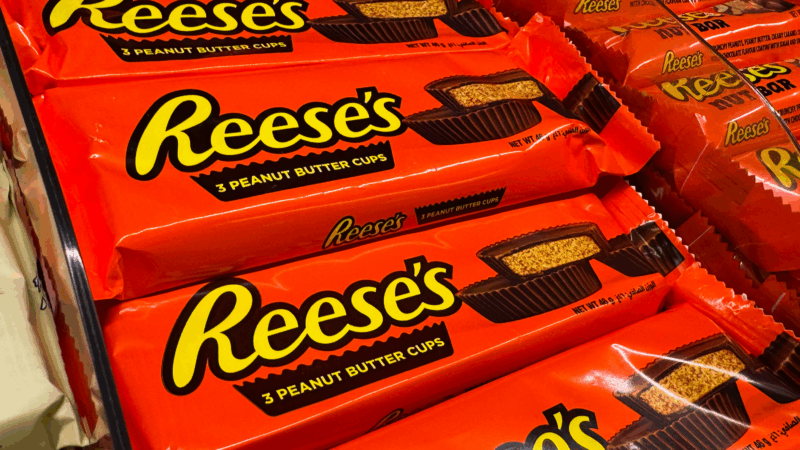Political violence is on the rise in America. What’s driving it?
On Friday, Utah Gov. Spencer Cox, a Republican, announced authorities have a suspect in custody for the murder of far-right activist Charlie Kirk. Cox identified 22-year-old Tyler Robinson as the alleged gunman who shot Kirk at an event at Utah Valley University on Wednesday.
According to Cox, a family friend told investigators that Robinson had “become more political in recent years,” and had recently expressed a dislike for Charlie Kirk. Beyond that, there are still a lot of questions still to be answered.
Still, in the long hours before his apprehension, speculation about the killer’s identity and motivations filled the void. President Trump blamed the “radical left” in the immediate aftermath of the shooting. But, as NPR domestic extremism correspondent Odette Yousef and senior political editor and correspondent Domenico Montanaro explain, political violence in America rarely follows left-right politics.
Instead, the data show an increase in political violence committed by people who have been influenced by a mix of different extremist ideologies. There have also been instances where people are committing violence just for the sake of violence.
Still, at a time of heightened partisanship, division and vitriol in the country, these acts of violence have frequently led to people projecting their own political beliefs onto the situation.
Listen to this conversation by tapping the play button above.
Transcript:
JUANA SUMMERS, HOST:
This morning, Utah Governor Spencer Cox announced authorities have a suspect in custody for the murder of far-right activist Charlie Kirk.
(SOUNDBITE OF ARCHIVED RECORDING)
SPENCER COX: I’m grateful that at this moment, we have an opportunity to bring closure to this very dark chapter in our nation’s history.
SUMMERS: But in the long hours before his apprehension, speculation about the killer’s identity and motivations filled the void. We want to take a moment to step back and talk about political violence and the increasingly familiar pattern taking shape in America. I’m joined now by NPR domestic extremism correspondent Odette Yousef and NPR senior political editor and correspondent Domenico Montanaro. Hi.
DOMENICO MONTANARO, BYLINE: Hey.
ODETTE YOUSEF, BYLINE: Hey, Juana.
MONTANARO: Great to be with you.
SUMMERS: I want to start with what we do know. Tyler Robinson was arrested yesterday. What can we say about him?
YOUSEF: Well, we know that he’s 22 years old. We know that he’s being held without bail in Utah County Jail at the moment. And according to what we heard from Governor Cox, a family friend told investigators that Robinson had, quote, “become more political in recent years,” also that Robinson didn’t like Charlie Kirk. But again, there is still much more to learn.
SUMMERS: When Governor Cox, who’s a Republican, announced that arrest this morning at a press conference, he called Kirk’s death tragic, and then he pulled back and widened the scope. Let’s listen.
(SOUNDBITE OF ARCHIVED RECORDING)
COX: It is an attack on the American experiment. It is an attack on our ideals. This cuts to the very foundation of who we are, of who we have been and who we could be in better times.
SUMMERS: And let’s also listen to the way that President Trump has been speaking out about this moment.
(SOUNDBITE OF ARCHIVED RECORDING)
PRESIDENT DONALD TRUMP: For years, those on the radical left have compared wonderful Americans like Charlie to Nazis and the world’s worst mass murderers and criminals. This kind of rhetoric is directly responsible for the terrorism that we’re seeing in our country today.
SUMMERS: Domenico, I’ll put this to you – two distinctly different messages from two leaders there.
MONTANARO: Yeah, very different. I mean, you know, experts will tell us that the way that leaders speak about these moments really matter. You know, calls for unity across the political spectrum among influencers online and on social media to be able to take the temperature down is what they say is most important in preventing more political violence.
You certainly heard that from Spencer Cox. He was very nuanced in a lot of how he’s spoken about this. You know, he talked about violence against Democrats yesterday. He noted today that there was a lot of nuance in how people viewed Charlie Kirk, for example saying that some people loved him, he certainly had an affinity for him but that some young people hated him. Those are his words. And so you had very different paths here because President Trump went directly at blaming the left.
YOUSEF: Yeah. I mean, I think what’s really important here is that, you know, Cox was referring to, you know, an attack on the American experiment, you know, this sort of ideal where, you know, we believe that even though we might have a variety of political beliefs and world views, we should be able to discuss those with civility and not resort to violence.
SUMMERS: We don’t yet know the motivation of this alleged shooter, but we are all living in a moment where political violence just feels more common, that it’s happening more frequently.
YOUSEF: And it is, actually. You know, data from the University of Maryland show that this uptick really started in 2015. But I think we also know this on a visceral level too, right, Juana? Like, we know about the attempted assassinations of then-candidate Trump last year. We know about, in June, the killing of a Minnesota state lawmaker and her husband and the injury of another state lawmaker there and his wife. There have been many more instances of political violence, and the data have borne that out.
SUMMERS: Odette, what do we know about the motivations behind political violence more broadly?
YOUSEF: Well, I think what we know is that it’s actually a much more complex landscape right now than I think people may realize. You know, I think we often assume that political violence maps onto the divides that we’re experiencing in this country. So if something happens to somebody who is politically on the right, you know, people may assume that it was committed by somebody on the left or vice versa. In fact, we are increasingly seeing that that is frequently not the case.
Just to take a specific example, you know, the attempted assassination of then-candidate Trump in Butler, Pennsylvania, last year. You know, the individual that was involved in that had also been looking at events where President Biden was going to be, and so he may have been looking for a way to commit a high-profile act of violence really more than seeking an attack within this left/right paradigm.
We’re also seeing an increase in political violence from what are known as non-ideological actors, so people that are just seeking to sort of destabilize our social fabric by committing violence. This whole idea that it has to be committed by somebody for political reasons at all is really not well supported in the data.
SUMMERS: We have seen a number of political leaders on the right, including President Trump, a Trump ally, Laura Loomer, some members of Congress, clearly blaming the left for this shooting. Big picture, what effect does that have on how we collectively understand this kind of violence?
YOUSEF: Well, I think the issue is that it obscures the reality of political violence that we have right now in this country. I’ll take another example. You’ll recall the killing of the UnitedHealthcare CEO Brian Thompson. The person that has been charged with that killing, we’ve seen him being celebrated as a kind of folk hero to the left; this despite the fact that we actually have very little evidence to go on to know what that individual’s political beliefs were. We know that he had a specific grievance against the health insurance industry, but we really don’t know much beyond that.
But that lack of clarity, that muddiness, lends itself to people sort of projecting their own beliefs on what they hope the violence really was about. And that is really a problem because, you know, it obscures the field. It makes it difficult for us to understand how to address political violence when we really don’t know the reasons or we’re not confronting the reasons that may be behind it.
MONTANARO: Yeah. And if I can just say, I’ve been a little disturbed by some of the reactions to Kirk’s death on some corners of social media, where there’s been this glee celebrating his death. And I have to say, you know, whether you’re conservative or liberal, I mean, at a national level, we have elections that put our representatives and senators and a president into office. And I cover politics, and that’s the way change is made, not through violence. And I think a big problem in the country, and a lot of people who are concerned about political violence have warned, is that when people lose faith in our institutions and lose faith in the system and they don’t believe in politics, that they worry that this is the kind of thing that can happen.
SUMMERS: NPR’s Domenico Montanaro and Odette Yousef, thank you.
MONTANARO: You’re welcome.
YOUSEF: Thank you.
10 new books in March offer mental vacations
March is always a big one for books – this year is no different. We call out a handful of upcoming titles for readers to put on their radars — offering a good alternative to doomscrolling.
Sen. Chris Coons, D-Del., talks about the war with Iran and upcoming war powers vote
NPR's A Martínez asks Delaware Democrat Chris Coons, a member of the Senate Foreign Affairs Committee, about the war with Iran.
The candy heir vs. chocolate skimpflation
The grandson of the Reese's Peanut Butter Cups creator has launched a campaign against The Hershey Company, which owns the Reese's brand. He wants them to stop skimping on ingredients.
Scientists make a pocket-sized AI brain with help from monkey neurons
A new study suggests AI systems could be a lot more efficient. Researchers were able to shrink an AI vision model to 1/1000th of its original size.
U.S. evacuates diplomats, shuts down some embassies as war enters fourth day
The United States evacuated diplomats across the Middle East and shut down some embassies as war with Iran intensified Tuesday while President Trump signaled the conflict could turn into extended war.
Kristi Noem set to face senators over DHS shutdown, immigration enforcement
The focus of the hearing is likely to be on how Kristi Noem is pursuing President Trump's mass deportation efforts in his second term, after two U.S. citizens were killed by immigration officers.






